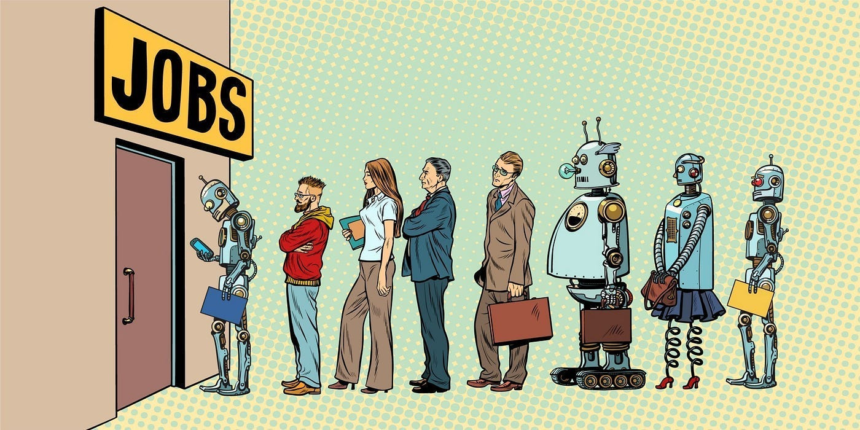Tom is a Keynote Speaker at "All we have is now" and a cofounder of Interesting Speakers. Previously he was at Publicis Groupe where he headed Innovation.
Tom has over 700k followers on Linkedin and is a #1 Voice in Marketing on the platform.
Guest Author: Tom Goodwin
This is why AI won’t take your job.
AI is very bad at jobs.
AI does tasks, but most people’s jobs are not one task.
A person manning the reception doesn’t do one thing, they do more than 20, of which less than 50% will be in their job spec.
AI is amazing at tasks.
Want to scan in invoices, brilliant. Want to generate content for SEO, fantastic.
But most companies are organized like this.

-DEPARTMENTS:Fulfilling a function, maybe Accounts, Legal, Procurement
-“Jobs” or ROLES: fulfilling a specific part of that department ( Legal Assistant, Analyst, Project manager)
-PROCESS or workflows: A series of actions that accomplish a core need ( Find/approve a supplier, handle inbound invoices, arrange monthly meeting)
-TASKS : The specific action that is part of getting something done ( send email to X, scan in document, open excel and enter PO number)
When you understand that, you can see how hard it is to embrace AI.
If AI can do a few tasks in one role, it’s not that transformative.
It do perhaps 10-30% of one process, which is 2-10% of someones role
This means you can’t really retrain them and use them elsewhere.
This means they end up switching modes continually.
The first part of any digital transformation is often to digitalize what we’ve done. It’s to find the gaps where technology can help, it’s to use tech like oil to lubricate the machine, it’s to find user interfaces that can be improved.
But it changes little in terms of efficiency and often shifts the problems to other places.

The only real way to embrace it is to redesign the engine, to rethink the core structure, to question the business model that the tech makes possible. To apply tech at the core.
Take all the tasks AI can do, and build this as a core service center. Rethink the roles you have, change the workflows, remove tasks from processes.
But that takes time, that takes thought.
2024-2025 will be the year people have AI for long enough to make the big changes that allow processes, culture and structure to change.
Its when things get better, efficiencies are really released and people end up liking their Jobs more.
Until that time, we just have friction and disappointment and frustration, and new interfaces to lubricate.
This was all in my book 2 years ago, and in my Digital Transformation Course that you can do now.
Because it’s the same process we have with every profound new tech.










